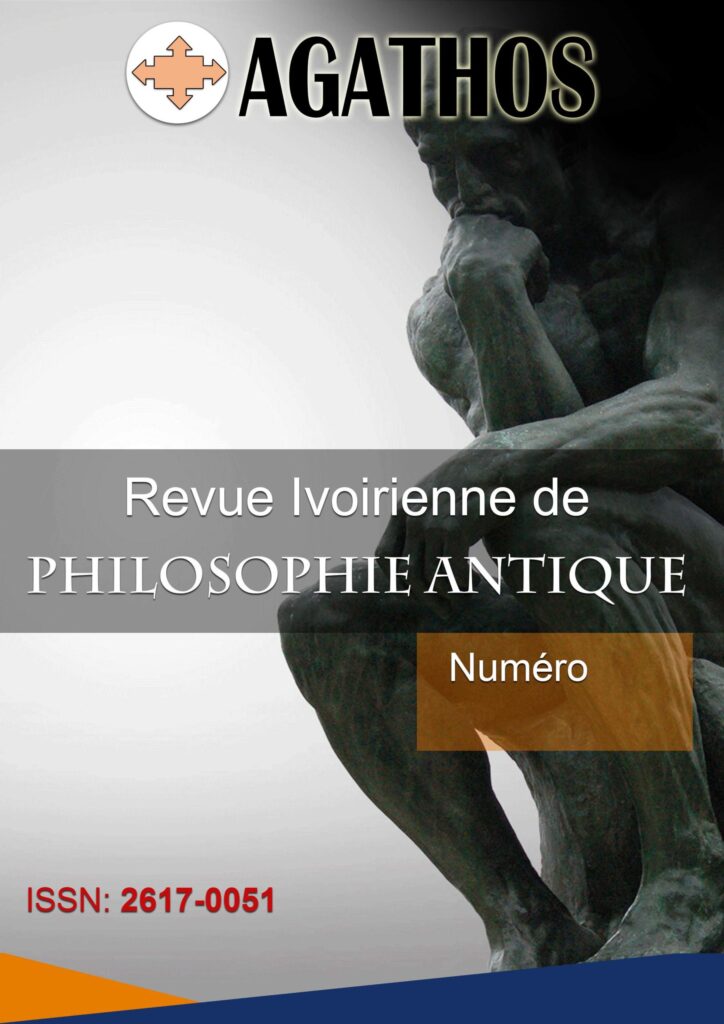
AGATHOS
ISSN-L : 2617-0051
Résumé
La philosophie stoïcienne revêt une dimension existentielle incomparable, car c’est un mode de vie qui est basé sur des règles morales, jugées parfois austères, mais efficaces pour toute personne en quête du bonheur. Difficile ou même impossible à réaliser, ce bonheur dépend pourtant de nous. Quand nous abordons la théorie de l’âme et de la connaissance stoïcienne, nous découvrons que les stoïciens identifient la faculté directrice, l’Hégémonique, au moi, mais démontrent également sa dimension toute pratique à travers sa puissance du choix et de la décision (la prohairesis). C’est, en effet, par le bon usage de nos représentations que nous accédons à la «tranquillité totale », au bonheur. Ce faisant, l’étude de la théorie stoïcienne des idées et de l’âme est une condition nécessaire à la compréhension de la dimension existentielle. Telle est la thèse défendue dans cette analyse.
Abstract
Stoics’ philosophy has a noteworthy existential dimension. It is a way of life that stands on rigorous moral rules, but effective for the stoics in search of unalterable happiness. Even though it is difficult or impossible to realize, such happiness depends totally on us. When on studies stoics’ theory of the soul and of knowledge, one realizes that the stoics identify the main faculty, i.e., the hegemonic with the self, but they also strive to show its practical dimension through its power of deliberation and decision (prohairesis). It appears as well that, as an existential attitude, stoic philosophy can be reduced to the judgments of the Hegemonic. In fact, we realize happiness in using correctly our representations. Thus, to understand stoics theory of knowledge and of the soul is necessary to the understanding of the existential dimension: that is the thesis we defend in our paper.
Mots-clés
Âme – Assentiment – Bonheur – Connaissance – Corps – Hégémonique – Jugement – Représentation – Stoïcisme

Auteur(s)
Khalia Haydara
Université Cheikh Anta Diop khaliahaydara@gmail.com